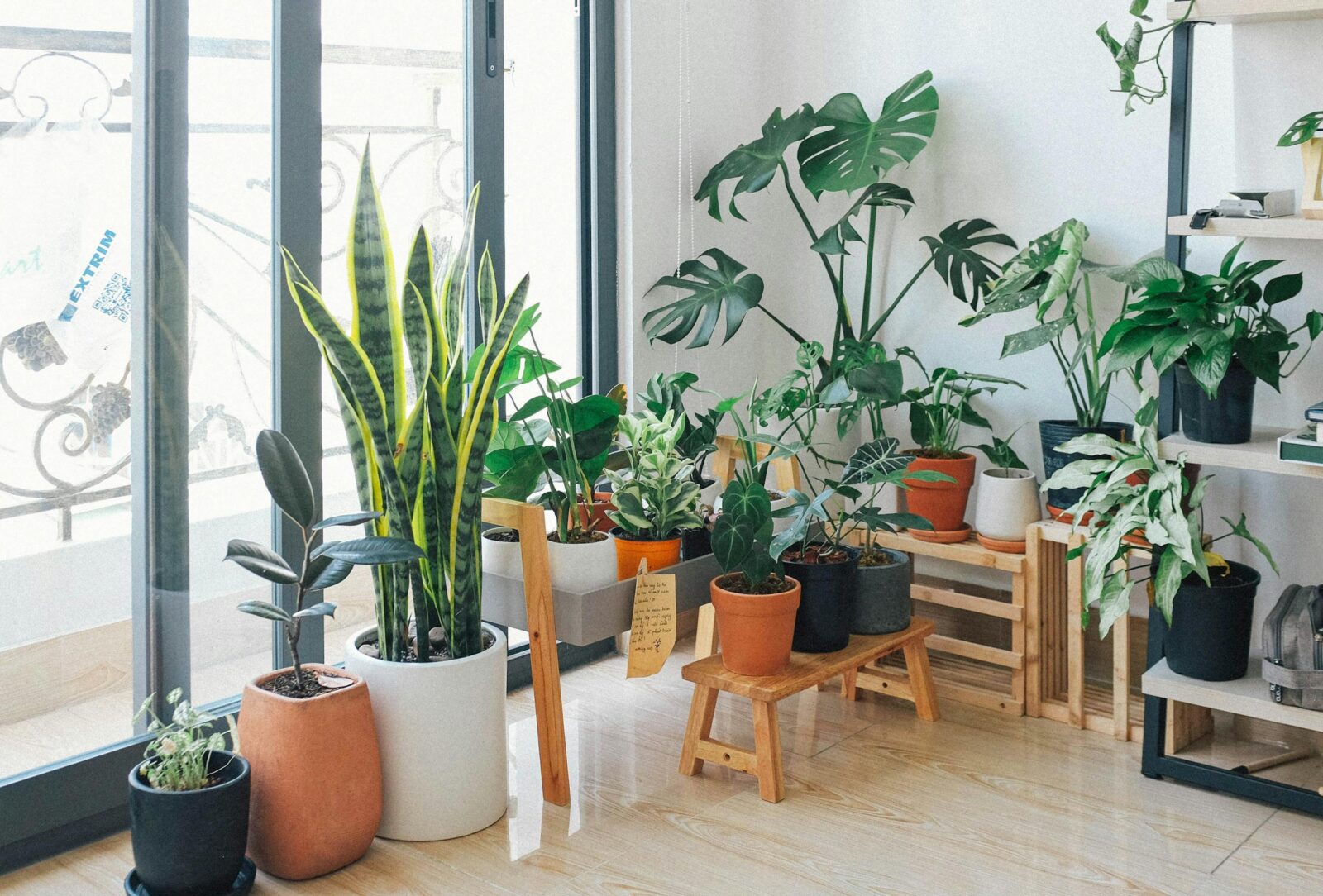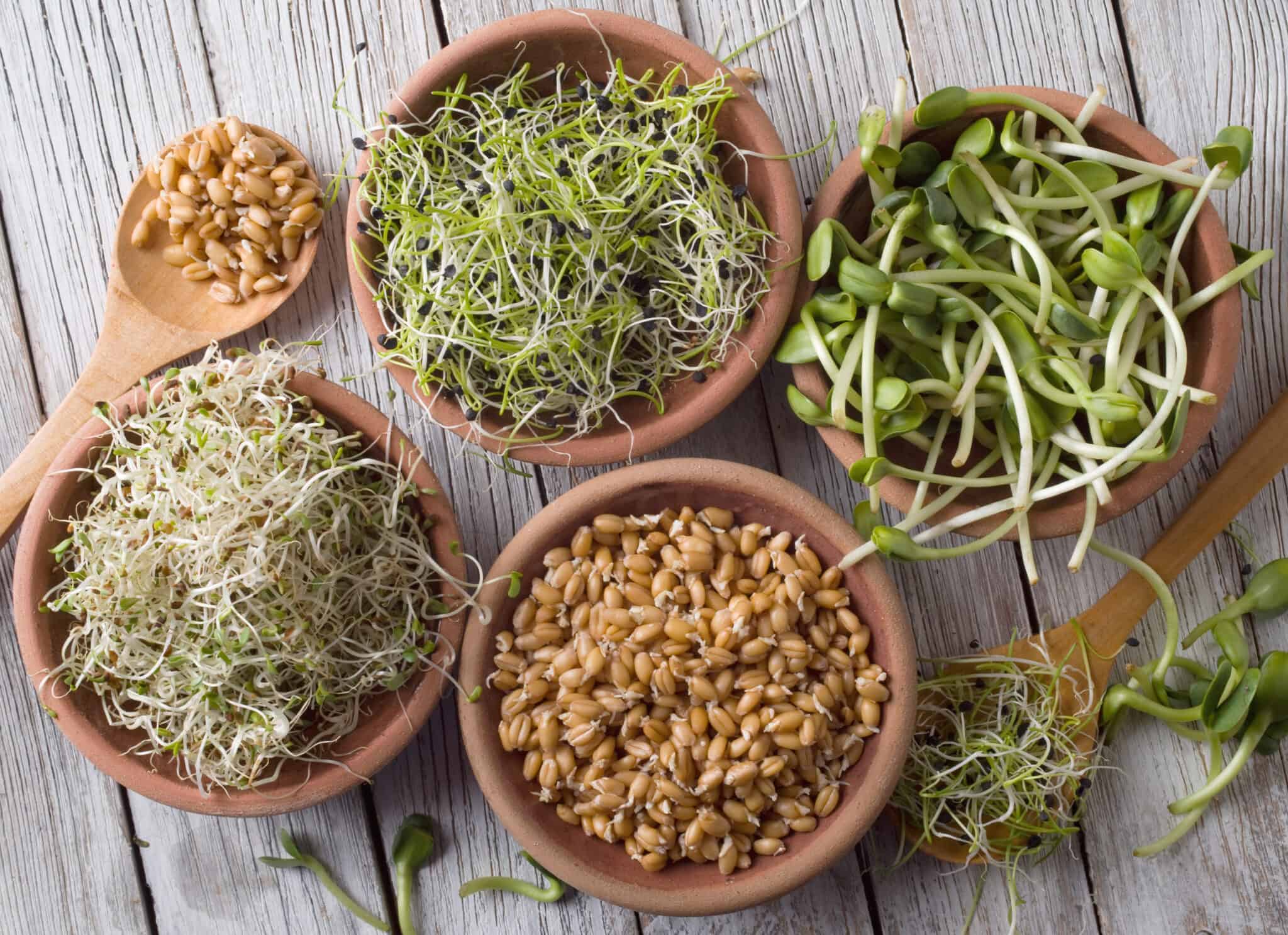Homemade Natural Non Toxic Weed Killer (Easy DIY Recipe That Really Works!)
If you’re searching for the best homemade natural non-toxic weed killer, this easy DIY recipe for Homemade Natural Non Toxic Weed Killer is safe, effective, and made with simple ingredients like vinegar and dish soap. Whether you’re dealing with driveway cracks or stubborn garden weeds, this all-natural solution works without harming your family, pets, or the environment.
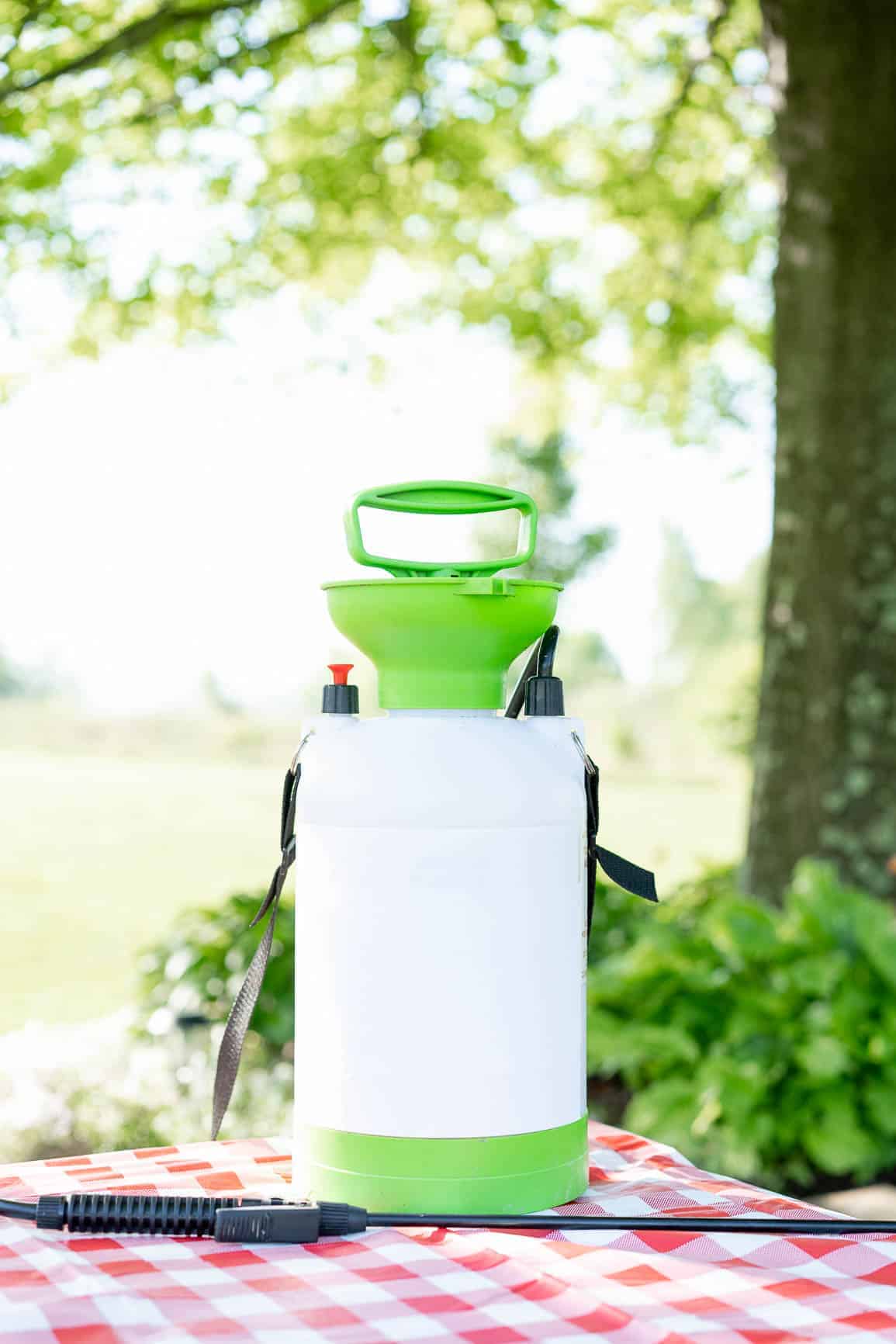 Who else has had enough of the weeds in their yard and garden?? Learn how I naturally kill those pesky weeds, as safely as possible, with The Best Homemade Natural Non-Toxic Weed Killer!
Who else has had enough of the weeds in their yard and garden?? Learn how I naturally kill those pesky weeds, as safely as possible, with The Best Homemade Natural Non-Toxic Weed Killer!
No I’m not joking. There is a healthy and safe way to spray away your weeds using the Homemade Natural Non Toxic Weed Killer, and I’m excited to teach you how to easily make your own homemade herbicides!
I first shared about our homemade weed killer a long long long time ago when I first started blogging. Over time I’ve diligently worked to improve my mixture saving so much time and money! The best part is this vinegar solution works as a contact herbicide to kill the leaves of stubborn weeds then when they no longer have above ground growth, the root systems will then die. This works on perennial and annual weeds in landscape and lawn weeds, as well as in your vegetable garden.
Additionally, this Homemade Natural Non Toxic Weed Killer is an economical solution that can be made at home without the need for expensive commercial products.
Why Use a Homemade Natural Non-Toxic Weed Killer?
If you’ve been using Round Up or other similar chemical-based herbicides, please READ THIS. They are toxic for humans, animals, insects, and our environment as a whole, unlike the unique benefits offered by Homemade Natural Non Toxic Weed Killer.
For us personally we have pets, an organic garden, 50+ fruit & nut trees PLUS a flock of back yard chickens, none of which should be exposed to toxic chemical weed killers. Not to mention we spend lots of time outside on our property, too!
And, food for thought, chemicals we use on our land seeps down into our ground water supplies and ultimately into major bodies of water too.
Ingredients for This DIY Weed Killer Recipe
You only need 3 ingredients to make The Best Homemade Natural Non-Toxic Weed Killer.
And of course you’ll need a sprayer, let me help you find the best one! Keep reading for my recommendation!
What you DON’T need but may see in other homemade weed killer recipes is a cup of salt, after YEARS of testing and perfecting natural ways to a make a natural weed killer with simple ingredients, additions like sea salt or epson salt are unnecessary.
First things first, your going to need an inexpensive garden sprayer. I like to use a 1.3 gallon sprayer for our 3+ acre homestead where I’m spraying around our landscaping, trees, chicken run and in our garden. It holds 1 full-size recipe of weed killer.
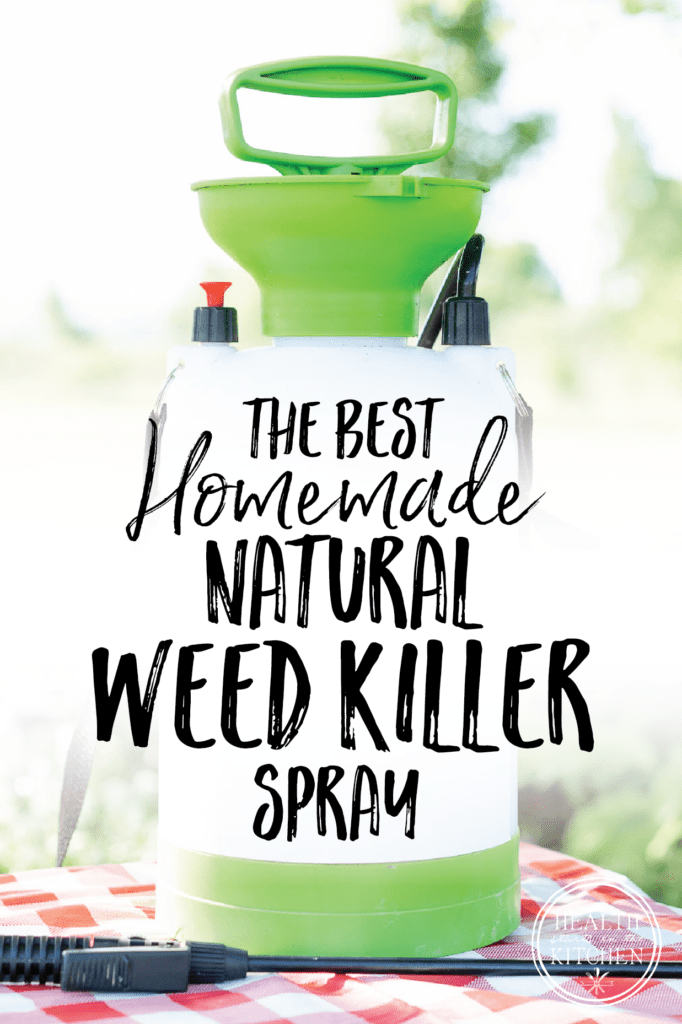
If you have a smaller yard or want to keep some pre-mixed for touch ups, you can use any size spray bottle for unwanted weeds. Repurposing a spray bottle that’s been throughly cleaned will work great but if you are going to purchase a spray bottle, choose a glass spray bottle so that you can use it for years to come for a wide variety of uses.
NOTE: It’s imperative to throughly clean out your sprayer. Do not let your homemade weed killer stay in the sprayer in-between uses it will ruin the sprayer. Rinse well with water and spray to clean the hose, too.
How to Make This Natural Weed Killer at Home
Does vinegar kill weeds, is the most common searched question and vinegar is the MAIN ingredient in my eco friendly weed killer recipe, making up 95% of the solution. But we aren’t using any vinegar, the trick is using THIS VINEGAR as the active ingredient.
When we hear stories of failed attempts to use vinegar to kill weeds, it’s 99% of the time because they used kitchen vinegar and not the GOOD stuff. (no you also can’t use lemon juice to make the most effective eco-friendly weed killer either!) You can also find tons of much more complicated recipes with additions of ingredients such as table salt, corn gluten meal, citric acid, soda, and/or boiling water to duplicate weed killing that you’d see with toxic products like roundup.
The acetic acid in the vinegar draw moisture from broadleaf weeds and other unwanted plants, causing them to die. Without leaves, the plant cannot get vital sunlight the it needs to continue growing after spraying with this vinegar weed killer.
Before you ask using household or canning vinegar is NOT strong enough for through, long lasting, weed control. Over the past 10 years you name the vinegar, I’ve tried it. I can say with complete and utter certainty that THIS VINEGAR will give you the BEST results, 6x more concentrated than traditional 5% white vinegar!
And by results I mean you use less vinegar wet killer spray, less often to maintain results.
A word of caution, THIS VINEGAR, while natural is STRONG. Wearing gloves and/or a mask may be necessary for sensitive individuals when using this home made weed killer.
And don’t use it for cooking, duh. Read the info on the bottle before using so that you understand what you are working with.
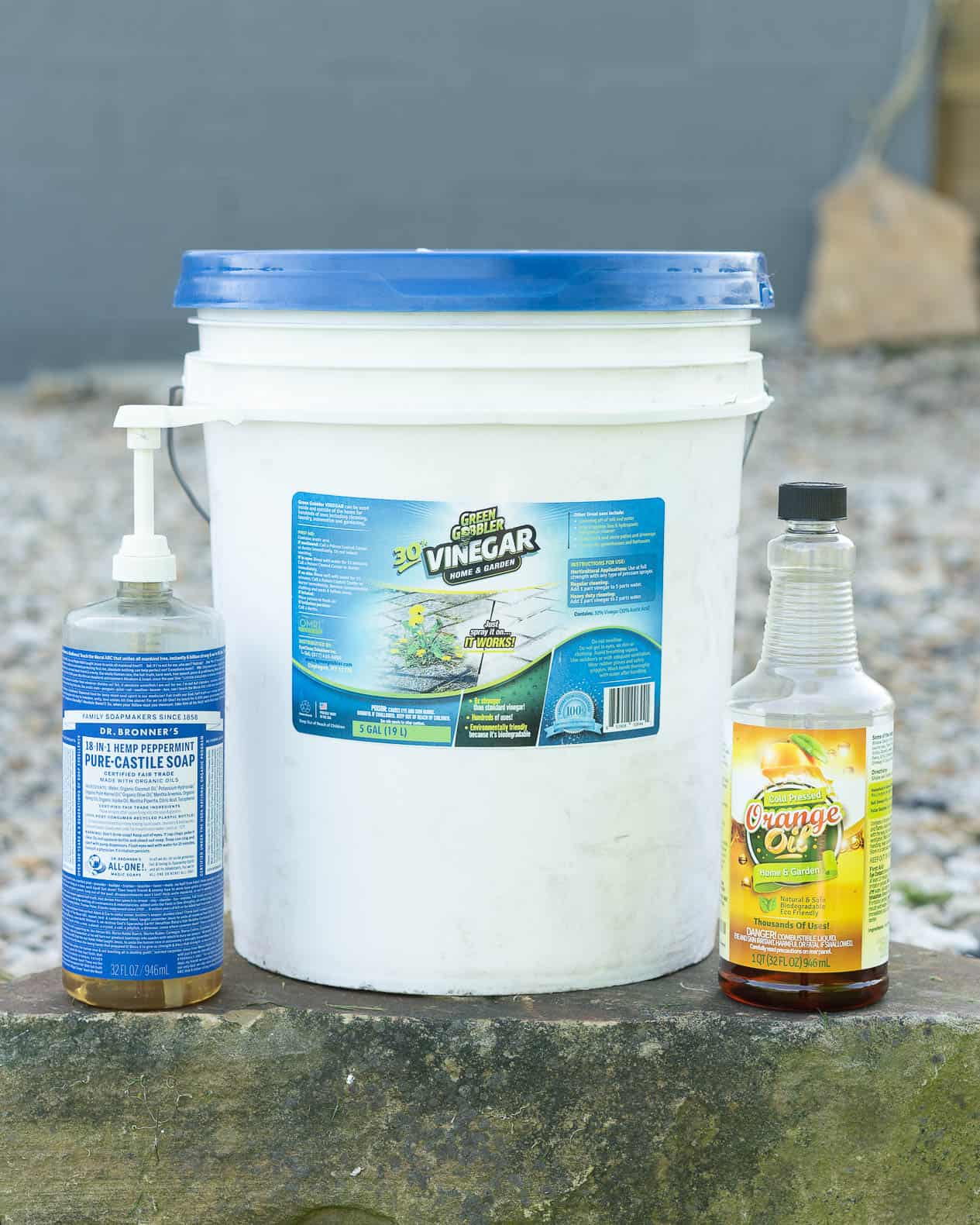 To save money, if you have a large area that you’ll be using your homemade weed killer on (like us, we have have over 100 trees we spray around and lots of garden weeds to keep up with) I suggest purchasing a 5 gallon bucket of vinegar, we tend to go through 3-4 gallon of vinegar each summer when we keep up with weed growth, new plants and persistent weeds / perennial weeds.
To save money, if you have a large area that you’ll be using your homemade weed killer on (like us, we have have over 100 trees we spray around and lots of garden weeds to keep up with) I suggest purchasing a 5 gallon bucket of vinegar, we tend to go through 3-4 gallon of vinegar each summer when we keep up with weed growth, new plants and persistent weeds / perennial weeds.
Let me repeat myself one more time, you cannot use regular distilled white vinegar, apple cider vinegar or household vinegar to make the most effective organic weed killer recipe.
Adding soap to the vinegar acts as a surfactant, which is an agent that will reduce the surface tension that can cause the weed-killing concoction to bead on the leaves instead of being absorbed by the plant when sprayed with this home made weed killer.
Any all natural dish soap can be used HOWEVER to kick up the weed killing to also have safe insecticide properties, I recommend Dr Bronners Peppermint Castile Soap. That little bit of peppermint in the Castile soap helps to deter ant and other pesky infestations, while still maintaining it’s safety. I also use it in my Asparagus Beetle Insecticide Spray.
Many others have shared that they make natural weed killer with vinegar and Dawn dish soap, while I find better success with Castile soap feel free to swap in Dawn liquid dish soap instead if that floats your boat!
For the pump (shown in the photo above) the fits the 32 ounce bottles CLICK HERE.
Concentrated Orange Oil is a natural and biodegradable product made from the oils extracted from orange peels during a cold press process that preserves the natural structure of the oil. Orange Oil has been found to be a key component of various gardening and household applications. As an ingredient in my DIY weed killer, orange oil like soap, helps to kill the weeds from the outer surface of the leaves. NOTE: Orange oil is not the same as essential oils.
Additionally Orange oil contains an extract from the peel called d-limonene, which is rated as an insecticide. According to University of Florida’s IFAS Extension, it kills fleas, aphids, mites, fire ants, house crickets, paper wasps and some flies as an added boost to your non-toxic week killer recipe!
NOTE: Concentrated Orange Oil is NOT the same as Orange Essential Oil and they are not interchangeable in this recipe.
Does Homemade Weed Killer Really Work?
The Best Homemade Natural Non-Toxic Weed Killer should be applied after the weeds have emerged (postemergent) and have little or no soil residual activity. This homemade weed killer don’t control weed seedlings that germinate after application. They kill the plants by breaking down plant membranes and are considered contact or burndown herbicides.
Generously spray undesired plants with your DIY weed killer on a sunny day when the ground is dry and there is no rain in the forecast for the next 24 hours. Be sure to fully saturate the leaves of the weeds and take care when spraying in flower beds to protect nearby plants from over spray.
This natural weed killer is very fast acting, but to be most effective they must contact all or most of the aboveground plant tissue, unlike commercial weed killers that contain commercial herbicides and harsh chemicals. It is especially important to spray the growing points, or else the plant will regrow.
You need to be cautious of the plants growing nearby where you are spraying, for detailed applications apply The Best Homemade Natural Non-Toxic Weed Killer with a paintbrush toe sure you do not damage the leaves of neighboring plants.
Here’s screenshots of my Instagram Story where I’ve shared the how this is the best natural weed killers!
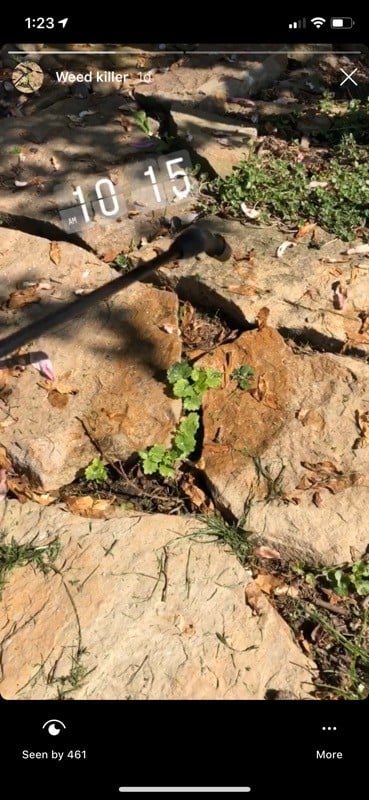
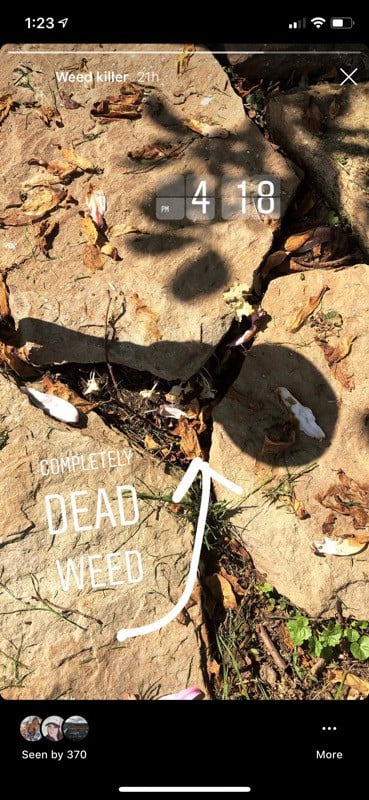
This eco friendly diy weed killer recipe can be used on dandelions in your lawn, cracks in your sidewalk, gravel driveways, mulch,
Common Questions About Homemade Weed Killers
I’ve recently added this section to help address questions that readers have asked. Please comment on this post if you need assistance and I’ll continue to add popular Weed Spray topics to this list!
- Epsom Salt Weed Killer: Should you add epsom salt to your weed killer recipe? Is Epsom salt a weed killer? Years ago when we first started switching to less toxic garden precuts, I made an all natural weed killer with epsom salt. After 15+ years of trial and error, perfecting this home remedy weed killer, I found that using epson salt weed killer is not as effective as this recipe, however if you want add epsom salt to your weed killer, I can’t find any reason that it would make this vinegar weed spray any less effective. If using vinegar and epsom salt weed killer works for you be sure to comment to help other readers too!
- Bleach Weed Killer: Does bleach kill weeds? Or better yet is does bleach kill weeds? Admittedly I’ve never tried bleach as a weed killer because I don’t feel adding bleach to our environment is a healthy choice nor would I advocate for you to do so. Additionally I would not feel comfortable with my pets/chickens/kids coming into contact with a homemade weed killer with bleach, this natural weed killer recipe is also a homemade weed killer safe for pets and the whole family!
- Is this a Natural Grass Killer? Not only will vinegar kill weeds, vinegar is also effective in a homemade grass killer. This homemade round up doesn’t descriminate, it’s also a homemade poison ivy killer. This homemade weed killer recipe is also effective at killing clover with vinegar too!
Homemade Natural Non-Toxic Weed Killer FAQs
❓ Is homemade weed killer safe for pets?
Homemade natural weed killers are generally much safer for pets than commercial herbicides, especially those containing glyphosate. The most common DIY formula—made from vinegar, salt, and dish soap—doesn’t contain harmful synthetic chemicals. However, that doesn’t mean it’s completely risk-free.
High concentrations of vinegar and salt can irritate paws or cause stomach upset if ingested in large amounts. Always allow treated areas to dry completely before letting your pets roam freely, and avoid spraying directly on walkways where paws might come into contact.
✅ For more on pet-safe gardening, check out ASPCA’s guide to toxic and non-toxic plants.
❓ Does vinegar and salt really kill weeds?
Yes, the combination of vinegar and salt is a well-known and effective natural weed killer—especially for young or shallow-rooted weeds. Vinegar contains acetic acid, which breaks down cell membranes in plant leaves, causing them to dry out. Salt helps to dehydrate the plant and disrupt water uptake from the soil.
However, this method is non-selective, meaning it will damage any plant it touches—including grass and garden plants—so apply carefully.
📚 According to the University of Maryland Extension, vinegar-based herbicides work best on annual weeds and may need reapplication for persistent or mature growth.
❓ What is the best natural alternative to Roundup?
Roundup (glyphosate-based) is widely used but increasingly controversial due to concerns over health and environmental impacts. Fortunately, there are safer, natural alternatives.
Homemade weed killers made from vinegar, salt, and dish soap are a great non-toxic solution for spot-treating unwanted weeds in driveways, sidewalks, and gravel paths. Other natural options include:
- Boiling water
- Corn gluten meal (for pre-emergent weed control)
- Manual weeding tools
🔬 The Environmental Working Group (EWG) supports DIY methods as part of safer lawn care practices.
🌱 You can also explore products labeled as OMRI-certified (for organic gardening) like those listed by the National Pesticide Information Center.
❓ Can I use homemade weed killer in a vegetable garden?
Caution is needed when using homemade weed killer in a vegetable garden. While vinegar and salt-based sprays are non-toxic to humans, they can harm your vegetable plants and soil health if misused.
Salt in particular can build up in the soil and negatively impact its structure and fertility over time. It’s best to spot treat carefully, avoiding any contact with your edible plants. For broader weed control in garden beds, consider mulching, hand weeding, or using a flame weeder.
🥦 The University of California Agriculture & Natural Resources recommends non-chemical methods like mulch, solarization, and proper spacing as the most effective and sustainable options in edible gardens.
Want more homesteading and garden tips? Check out these related tips!
- How to use the Moon Phase for a Healthy Garden
- Recycling + Composting = Weed Free Gardening
- How to Fix Splayed Leg or Spraddle Leg in Chicks
- What to Forage for in April; Morel Mushrooms and Ramps
Yours in Health,

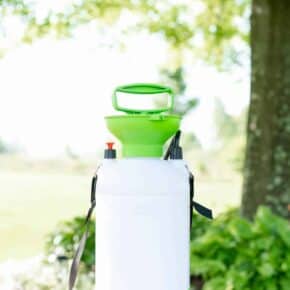
Homemade Natural Non Toxic Weed Killer
Equipment
Ingredients
- 128 ounces 20-30% Vinegar
- 16 ounces Cold Pressed Orange Oil Concentrate
- 2 ounces Dr Bronner's Peppermint Castile Soap
Instructions
- Add vinegar to your sprayer.
- Pour orange oil into the vinegar.
- Lastly add soap.
- Assemble sprayer according to the manufactures insructions. Spray weeds on a sunny day.

